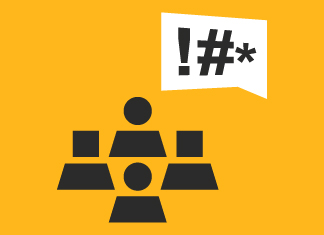| Country | AL |
| Name and Surname | Media outlets |
| Gender | Group |
| Date | 24/10/2024 |
| City / Location | Tirana |
| Type of incident | Other threats to journalists |
| By whom | By public officials |
| Media name | BIRN, Ermal Vija - ABC News and Journalist Klodiana Lala |
| Source | https://www.instagram.com/reel/DBdt_-jNQsw/?igsh=MWd6NWhxeHlxbHFnMg%3D%3D |
| Was journalist`s association informed | Yes |
The recent arrest of former President of Albania Ilir Meta on corruption charges has amplified polarization within Albania’s political landscape with spillover in the media sphere as well. Supporters of the Special Prosecution Against Corruption and Organized Crime (SPAK) view Meta’s arrest as a critical step in tackling high-level corruption, emphasizing the importance of accountability for Albania’s political elite. This sentiment is echoed by a coalition of political figures and civil society organizations committed to justice reform, positioning SPAK’s actions as a necessary component of Albania’s progression towards the rule of law. In stark contrast, Meta’s supporters, alongside opposition figures, interpret the arrest as a politically driven maneuver orchestrated by the ruling government to silence dissent. They argue that SPAK is being weaponized to marginalize opposition voices, undermining SPAK’s perceived impartiality and casting doubt on the institution’s autonomy.
This political divide has increasingly spilled into the media sphere. Monika Kryemadhi, former wife of Ilir Meta and ex-chairwoman of the Socialist Movement for Integration (now Party of Freedom), held a press conference on October 22 following Meta’s arrest, where she accused BIRN Albania, a prominent investigative outlet, of publishing manipulated stories allegedly driven by her husband’s political adversaries. The next day, on October 23, in an impromptu press conference after a hearing at the Special Court of First Instance Against Corruption and Organized Crime (GJKKO), Kryemadhi engaged in a heated exchange with an ABC News correspondent outside the courthouse. She questioned the journalist’s integrity by linking his line of questioning to ABC’s owner, suggesting undue influence or political bias in their coverage.
Another episode involved a prominent public figure and journalist Andi Bushati, who publicly criticized Klodiana Lala, an investigative reporter, by labeling her a “parrot” for SPAK, implying collaboration with the prosecution. Such inflammatory rhetoric fosters an atmosphere of intimidation and hostility among journalists, intensifying the polarization within Albania’s media sector and contributing to an environment where press freedom is increasingly under threat.
The arrest of Ilir Meta has intensified Albania’s political polarization, with significant implications for judicial independence, media freedom, and democratic integrity. SPAK’s actions, perceived by some as a legitimate anti-corruption measure, are viewed by others as politically motivated, potentially eroding public trust in the judiciary. Meanwhile, rising hostility toward the media, compounded by derogatory language rapidly amplified on social media, shapes public discourse and entrenches political narratives. Social media algorithms favor sensational or emotionally charged content and create echo chambers that reinforce users’ pre-existing beliefs and marginalize dissenting views, heightening polarization and reducing opportunities for constructive dialogue. This polarized atmosphere stifles independent reporting and can lead to self-censorship.



